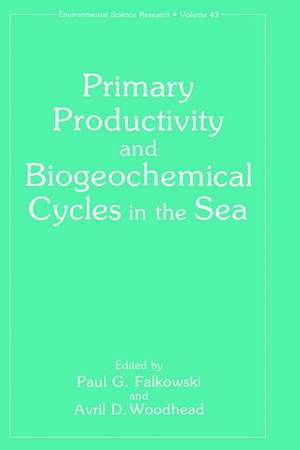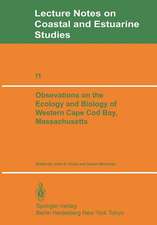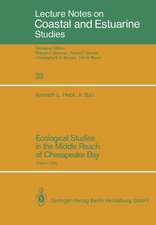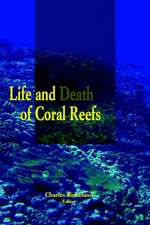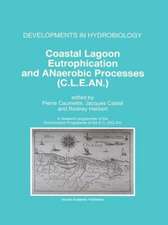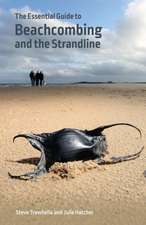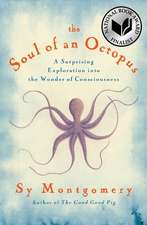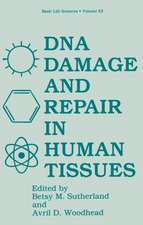Primary Productivity and Biogeochemical Cycles in the Sea: Environmental Science Research, cartea 43
Editat de Paul G. Falkowski, Avril D. Woodheaden Limba Engleză Hardback – 31 mai 1992
| Toate formatele și edițiile | Preț | Express |
|---|---|---|
| Paperback (1) | 1828.42 lei 6-8 săpt. | |
| Springer Us – 26 iun 2013 | 1828.42 lei 6-8 săpt. | |
| Hardback (1) | 1834.77 lei 6-8 săpt. | |
| Springer Us – 31 mai 1992 | 1834.77 lei 6-8 săpt. |
Din seria Environmental Science Research
-
 Preț: 405.28 lei
Preț: 405.28 lei - 15%
 Preț: 583.75 lei
Preț: 583.75 lei -
 Preț: 413.76 lei
Preț: 413.76 lei -
 Preț: 386.81 lei
Preț: 386.81 lei -
 Preț: 391.61 lei
Preț: 391.61 lei -
 Preț: 403.53 lei
Preț: 403.53 lei -
 Preț: 398.74 lei
Preț: 398.74 lei -
 Preț: 405.06 lei
Preț: 405.06 lei -
 Preț: 397.59 lei
Preț: 397.59 lei -
 Preț: 410.66 lei
Preț: 410.66 lei -
 Preț: 410.88 lei
Preț: 410.88 lei -
 Preț: 391.02 lei
Preț: 391.02 lei - 15%
 Preț: 656.25 lei
Preț: 656.25 lei - 18%
 Preț: 1253.54 lei
Preț: 1253.54 lei - 15%
 Preț: 602.40 lei
Preț: 602.40 lei - 5%
 Preț: 387.58 lei
Preț: 387.58 lei -
 Preț: 409.89 lei
Preț: 409.89 lei -
 Preț: 406.80 lei
Preț: 406.80 lei -
 Preț: 415.29 lei
Preț: 415.29 lei -
 Preț: 426.06 lei
Preț: 426.06 lei -
 Preț: 405.53 lei
Preț: 405.53 lei -
 Preț: 394.29 lei
Preț: 394.29 lei -
 Preț: 406.05 lei
Preț: 406.05 lei -
 Preț: 403.15 lei
Preț: 403.15 lei -
 Preț: 409.13 lei
Preț: 409.13 lei -
 Preț: 433.36 lei
Preț: 433.36 lei -
 Preț: 399.50 lei
Preț: 399.50 lei - 15%
 Preț: 592.07 lei
Preț: 592.07 lei -
 Preț: 391.02 lei
Preț: 391.02 lei -
 Preț: 395.85 lei
Preț: 395.85 lei - 5%
 Preț: 1106.33 lei
Preț: 1106.33 lei -
 Preț: 391.79 lei
Preț: 391.79 lei - 5%
 Preț: 378.97 lei
Preț: 378.97 lei -
 Preț: 395.09 lei
Preț: 395.09 lei - 15%
 Preț: 670.82 lei
Preț: 670.82 lei -
 Preț: 395.85 lei
Preț: 395.85 lei - 5%
 Preț: 720.31 lei
Preț: 720.31 lei -
 Preț: 452.04 lei
Preț: 452.04 lei -
 Preț: 399.50 lei
Preț: 399.50 lei - 18%
 Preț: 953.20 lei
Preț: 953.20 lei - 15%
 Preț: 664.61 lei
Preț: 664.61 lei - 18%
 Preț: 951.77 lei
Preț: 951.77 lei -
 Preț: 389.31 lei
Preț: 389.31 lei - 18%
 Preț: 947.98 lei
Preț: 947.98 lei
Preț: 1834.77 lei
Preț vechi: 2237.52 lei
-18% Nou
Puncte Express: 2752
Preț estimativ în valută:
351.07€ • 366.55$ • 290.57£
351.07€ • 366.55$ • 290.57£
Carte tipărită la comandă
Livrare economică 05-19 aprilie
Preluare comenzi: 021 569.72.76
Specificații
ISBN-13: 9780306441929
ISBN-10: 0306441926
Pagini: 550
Ilustrații: X, 550 p.
Dimensiuni: 156 x 234 x 32 mm
Greutate: 0.96 kg
Ediția:1992
Editura: Springer Us
Colecția Springer
Seria Environmental Science Research
Locul publicării:New York, NY, United States
ISBN-10: 0306441926
Pagini: 550
Ilustrații: X, 550 p.
Dimensiuni: 156 x 234 x 32 mm
Greutate: 0.96 kg
Ediția:1992
Editura: Springer Us
Colecția Springer
Seria Environmental Science Research
Locul publicării:New York, NY, United States
Public țintă
ResearchCuprins
Honorary Lecture.- Towards Understanding the Roles of Phytoplankton in Biogeochemical Cycles: Personal Notes.- Factors Limiting Primary Productivity in the Sea I. Light.- The Nature and Measurement of the Light Environment in the Ocean.- The Functional and Optical Absorption Cross-Sections of Phytoplankton Photosynthesis.- Molecular Ecology of Phytoplankton Photosynthesis.- Factors Limiting Primary Productivity in the Sea II. Nutrients.- Nutrient Limitation and Marine Photosynthesis.- Geological and Climatic Time Scales of Nutrient Variability.- Nutrient Limitation of New Production in the Sea.- Iron as a Limiting Factor in Oceanic Productivity.- Estimation of Global Ocean Production.- Satellite Ocean Color Observations of Global Biogeochemical Cycles.- Advances in Understanding Phytoplankton Fluorescence and Photosynthesis.- Bio-Optical Models and the Problems of Scaling.- The Role of Marine Organisms in Primary Production.- Phytoplankton Size.- Productivity of Seaweeds.- Productivity of Zooxanthellae and Biogeochemical Cycles.- New Production and Biogeochemical Cycles.- The Importance and Measurement of New Production.- The Role of Coastal High Latitude Ecosystems in Global Export Production.- Tracer-Based Inferences of New Primary Production in the Sea.- New Production and the Global Carbon Cycle.- Loss Processes and Material Recycling.- Respiration: Taxation Without Representation?.- Bacterioplankton Roles in Cycling of Organic Matter: The Microbial Food Web.- Regeneration of Nutrients.- Grazing, Temporal Changes of Phytoplankton Concentrations, and the Microbial Loop in the Open Sea.- Phytoplankton in the Global Content.- Biosphere, Atmosphere, Ocean Interactions: A Plant Physiologist’s Perspective.- Reading the Sedimentary Record of the Ocean’s Productivity.-Do Marine Phytoplankton Influence Global Climate?.- Participants.
